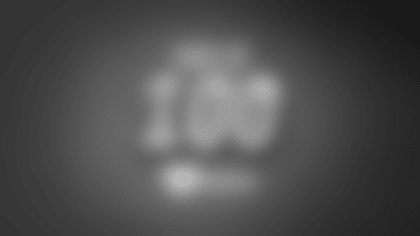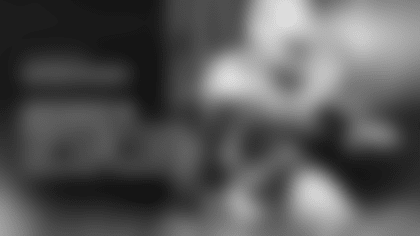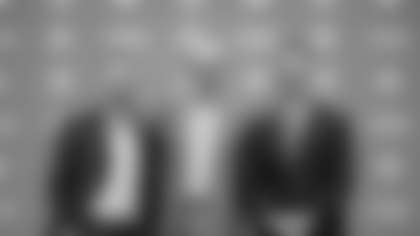The eye in the sky does not lie. And although millions of fans watch every game each Sunday, there's one vantage point that captures the game like none other.
Former Dolphins Video Director Dave Hack manned that perch for nearly four decades, providing Don Shula, Jimmy Johnson, Dave Wannstedt and Nick Saban with the lifeblood by which every football franchise operates: the invaluable game tape.
Hack is one of 15 individuals set to be honored this week by the Pro Football Hall of Fame with the 2025 Awards of Excellence in Canton, Ohio. The award, established by the Hall of Fame in 2022, recognizes contributors to the game in "behind-the-scenes" job roles in five categories: assistant coaches, athletic trainers, equipment managers, film/video directors and public relations directors. Each recipient is selected by their peers within their respective group.
Hack is one of three former NFL film/video directors to receive this year's award and will be honored alongside former Dolphins Senior Vice President of Communications and Community Affairs Jason Jenkins, who will be recognized in the public relations directors category.
Hack began his journey with the Dolphins in 1974 and was the longest-tenured employee at the time of his retirement in 2008 after working nearly 600 Dolphins games.
He never missed a moment. In his 35 years with the organization, Hack saw two Super Bowl appearances, 10 AFC East titles and each of Dan Marino's 452 career touchdown passes (playoffs included).
"There's one person that's kind of unique – our video man, Dave Hack." Marino said during his retirement press conference. "He's the only person who's seen every touchdown pass that I've ever thrown. I thought that was kind of neat."
It was a highlight moment for Hack to see Marino acknowledge him in his retirement speech, and it was only fitting for the Hall of Fame quarterback to deliver the news and welcome him to Canton.
"Coming from Dan and coming from my peers, it's a priceless thing for me," Hack said. "It shows you how well organized our group was to even be able to have an award like this. And I think it's just wonderful to be honored with some of these other pioneers in the field."
A career in technology that spanned four different decades saw plenty of advances, from having to cut film using scissors and tape to analog and the digital age.
"The role changed so much over my career," Hack said. "When we started with 16-millimeter film, the ability to make what they call now 'cut-ups' was primitive. And when we got into videotape, that launched into a whole new wave of what I can do with these images. Then we started making it into a digital format where you can attach a database to it. So, all these coaches went from real primitive to anything I want."
Hack's passion for film was preceded by his intrigue by the equipment itself. A self-described "hardware guy," Hack played a crucial role in each phase of the film-to-video evolution, and his deep knowledge of the equipment came in handy when the team moved into its new training headquarters in Davie, Fla., in 1993.
"When we went from film to video, I was already familiar with the equipment," Hack said. "I built and wired our own studios, and when we moved into the new training facility in Davie, I did all the wiring for all the meeting rooms and the studio and everything myself."
Hack helped shape the way video departments across the league operate today. He served as the AFC East representative to the NFL video directors quality control committee and as a technical advisor to the NFL video directors digital committee in the late 1990s and early 2000s.
His expertise was also pivotal on a potential major change to the workflow of video departments across the league.
In the early 2000s during the transition from analog to digital, the NFL was on the verge of moving on from some of the aging equipment video departments used. The move came with a hefty price tag and would have required major fundamental changes to the way each department operated. This raised flags in Hack's mind, prompting him to author a letter to NFL decision-makers.
"With my letter, [we] put a hold on the proceedings [to make the change] … and to do more research on what we actually did and what we actually needed," Hack said. "The decision was to keep our legacy hardware and modernize it and move on from there and not do a radical change in format."
Hack added: "The best part about that was that all of your legacy tapes that you had as coaches moved around from team to team, everything played everywhere. You didn't have to change it. You don't have to convert it. It was the logical thing to do."
Logic, hard work and solution-based thinking are some of the themes most-often associated with Hack's name around the Dolphins facilities in Miami Gardens. Even though he's been retired for almost 20 years, his name still carries substantial weight in the organization and the term "legend" precedes any conversation about Hack with current members of the Dolphins video department.
Hack's name will now live on at the Pro Football Hall of Fame in Canton, Ohio, a fitting tribute to a legendary man who spent almost four decades contributing to the growth of a legendary game.











